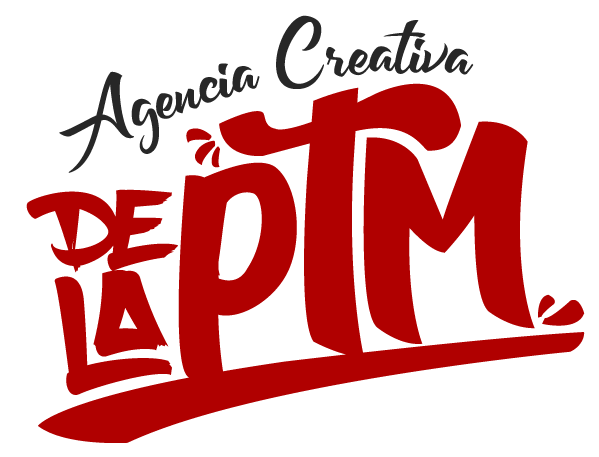These psychological conditions are often intense enough to interfere with life functioning, and the symptoms are often recognized by physicians and other health care providers as serious enough to require treatment. When depressed or anxious alcohol-dependent people are asked their opinions about cause and effect, they often reply that they believe they drink in order to cope with their symptoms of sadness or nervousness. Examples of anxiety disorders include generalized anxiety disorder, social anxiety disorder (social phobia), specific phobias and separation anxiety disorder. The respective prevalences of comorbid anxiety disorders and AUDs from each of these epidemiological studies are summarized in table 1. These data show that, across different large-scale studies, at different times, and both in the United States and abroad, anxiety and AUDs co-occur at rates greater than would be expected by chance alone. The odds ratios (ORs) characterizing the comorbidity between an AUD and any anxiety disorder in these studies ranged between 2.1 and 3.3—in other words, the two conditions co-occurred about two to three times as often as would be expected by chance alone.
- Excessive alcohol can affect the nervous system and if consumed in a chronic and progressive manner, it can have long term mental and physical consequences, the addiction medicine specialist warned.
- For example, a person might have started feeling more relaxed after just one glass of wine.
- Third party websites are not owned or controlled by Bupa and any individual may be able to access and post messages on them.
- Collectively, these independent findings are consistent with the mutual-maintenance model of comorbid anxiety and AUDs.
As you drink alcohol, it acts as a sedative which can make you feel more at ease. This type of self-medication can lead to alcohol dependency and may result in regular, alcohol-induced panic attacks. It is very common for people who experience anxiety to self-medicate by consuming alcohol, which can offer a temporary fix. In fact, research suggests that around 25% of people with panic disorder also have an alcohol dependence.
Step 2 – reduce
Chronic alcohol use can cause physiological changes in the brain, such as altering neurotransmitter levels, which can increase susceptibility to anxiety. Drinking to relieve anxiety can backfire because alcohol changes the levels of serotonin and other neurotransmitters in the brain, which can make anxiety worse. When the alcohol wears off, you may experience heightened levels of anxiety and fear, often referred to as ‘hangxiety’, which can be quite distressing. People with anxiety disorders often need medication to manage their symptoms. Mixing alcohol with anxiety medications can be counterproductive because alcohol alters the function of neurotransmitters, potentially reducing the effectiveness of the medication.
A primer on anxiety disorders
For example, in the NESARC, Native Americans had elevated rates both of anxiety disorders and of AUDs over the past 12 months but lower rates of co-occurrence between these disorders compared with other ethnic groups (Smith et al. 2006). According to Bhatt, alcohol-induced anxiety can last anywhere from days or weeks to longer periods of time such as months or years. Exactly how long the anxiety lasts varies by individual, depending on several factors.
Experts have seen that people who were depressed and drinking, who then gave up alcohol, started to feel better within a few weeks. If you try this and feel better, what are sugar alcohols then it’s likely it was the alcohol causing your low mood. Alcohol lowers your inhibitions, so you may say and do things more freely than when you’re sober.
Does Alcohol Cause Anxiety?
In some cases, you may receive a dual diagnosis of a major depressive disorder (MDD) and an alcohol use disorder (AUD). This co-occurring disorder isn’t uncommon, but it can be difficult to treat. Alcohol is often consumed for its initial calming effect on the central nervous system, but this can lead to tolerance and alcohol use disorder (AUD).
1For reviews of studies not cited in the reference list, see Schuckit and Hesselbrock 1994. If you are concerned that you or someone you care about has a problem with alcohol there is a lot of help available. Here you can find useful links and phone numbers to get the support you need.
Mark Willson, holding a Ph.D., functions as a psychotherapist in Washington, D.C. His specialized fields encompass addiction, anxiety, depression, as well as sexuality and interpersonal connections. Dr. Willson holds the distinction of being a diplomat for the American Board of Addiction alcohol-related crimes: facts and statistics on alcohol and violence and Anxiety, further serving as a certified counselor and addiction specialist. When you have a hangover, this study suggested, not only do you appraise everything you encounter less positively, but a negative frame of mind is also likely to get in the way of healthy coping strategies.
Our short survey takes just a few minutes to complete and helps us to keep improving our healthy lifestyle articles. If you’ve been having a drink most days as your way to relax, it can be hard to break that habit. So start by aiming to have just one small drink with your dinner in the evening. Try to resist the temptation to reach for the bottle as soon as you get home. “Therapeutic interventions designed to address both issues often include a focus on addressing emotional pain or trauma, as well as developing and practicing healthy coping behaviors,” says Kennedy. Drinking heavily can cause people to perform volatile actions that they would not normally engage in or may result in a blackout.
Although these studies raise important questions, researchers cannot draw definitive conclusions about the association between alcoholism and psychiatric disorders for a number of reasons. The major problem encountered in these studies involved the use of research methods that failed to address several important issues that might have explained the observed relationships (Allan 1995; Schuckit and Hesselbrock 1994). Specifically, some studies focused on drinking patterns rather than on alcohol dependence or described mood/anxiety symptoms rather than true psychiatric disorders. The distinction is important, because symptoms might be only temporary, whereas true psychiatric disorders are likely to require long-term and more intensive treatments, including psychotherapy and medication. Thus, few of the investigations offered assurance that an alcoholic or alcoholic’s relative actually had a long-term psychiatric syndrome rather than a temporary alcohol-induced condition.
It’s common for people with social anxiety disorder to drink alcohol to cope with social interactions. Doing this can lead to a dependence on alcohol during socializing, which can make anxiety symptoms worse. While it may seem to relieve stress at first, regular or heavy drinking can worsen anxiety disorders over time by affecting neurotransmitter balance and brain health.
How Anxiety and Alcohol Feed into Each Other
Naltrexone, Acamprosate, and disulfiram are also FDA-approved medications that can help curb alcohol cravings. Depending on the severity of the disorders, you may need more intense treatment, such as outpatient care, integrated assertive community (ACT) treatment or a residential stay, which may be required to begin or continue your recovery journey. Cognitive behavioral therapy can also be used to treat co-occurring AUD and MDD, by improving your emotional regulation, changing your cognitive behaviors, and helping you develop personal coping strategies. Kennedy suggests that treatment options can vary depending on the severity of your condition.
Social Embarrassment
For those who have an alcohol use disorder, it’s a symptom of alcohol withdrawal syndrome. About 20 percent of people with social anxiety disorder also suffer from alcohol dependence. About 3.1% of the U.S. population is affected by generalized anxiety disorder, according to the Anxiety & Depression Association of America. If you’re feeling nervous about being in a social setting, you may pour yourself a glass of wine to self-regulate any stress.
Can alcohol help with anxiety?
Taken together, the findings reviewed here provide some instructive information on gender differences in the comorbidity of anxiety and AUDs. Thus, women are more likely than men to have both disorders, and the presence of anxiety disorders may exacerbate the course and severity of alcohol problems in women. These factors spotlight the importance of probing for anxiety disorders in women entering alcohol treatment and reinforce the need to remain sensitive to the different ways that gender can influence the process and outcomes of therapy. Studies have shown a different trend of alcohol use in people who are diagnosed with generalized anxiety disorder or panic disorder.
Dopamine is a ‘mood booster,’ which is why drinking can cause a pleasurable sensation in the short-term. However, when alcohol “wears off,” the brain’s serotonin, dopamine, and endorphin levels become depleted. The nervous system can also become overactive in reaction to the depressive effects of alcohol, causing an imbalance in brain chemistry. This phenomenon is often referred to as “hangxiety,” how to safely detox from alcohol at home 7 tips and can last from a few hours to a few days after consuming alcohol. The psychosocial impact of alcoholism also has been implicated in the genesis of anxiety. Social consequences of habitual excessive drinking are common and include pervasive and cumulative problems in vital areas of life, such as employment, interpersonal relationships, and finances (Klingemann 2001; Klingemann and Gmel 2001).
Everyone is different and may experience various combinations of the above, which are almost always accompanied by an overwhelming sense of fear and anxiety. The two often create a cycle that’s hard to break, whereby the onset of one is a trigger for the other. She’s also reported on various other major events, from the Black Lives Matter movement and the war in Afghanistan to the U.S. and Canadian elections and the 2020 Tokyo Olympics, after joining the general news desk of Newsweek in 2019. Other than practicing healthy coping strategies (such as exercise or mindfulness), “the best option is simply to let time pass,” the NIAAA director said. When these blackouts become chronic, people become self-conscious and are unable to trust themselves. They feel guilty and depressed about their past mistakes or behaviors while intoxicated.


